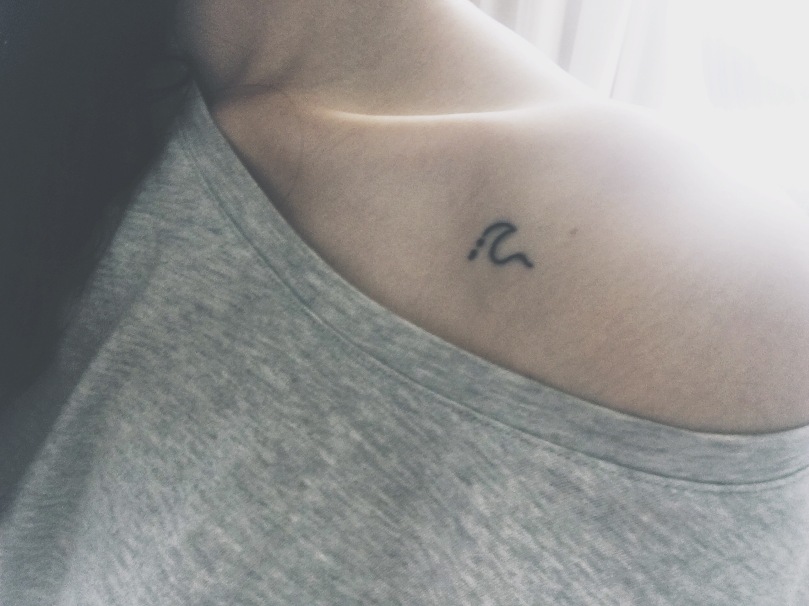
So this happened yesterday.
I’ve been considering getting one for close to a year now, and I guess recent events coupled with BPD impulsivity made me think, what the hell, I’m going to do it. I’ve been so desperate for change these days, and most of all, for control.
I know most of my problems arise from my simple desire for permanence in an impermanent world. I want to know that the Boyfriend will love me forever and never leave me, that his feelings for me will be as constant as the daily rising of the sun. This lack of certainty leaves me terrified every day… and I don’t want to be terrified. I never asked for this. I never asked for my brain to be this way.
Part of committing to recovery in BPD is giving up the idea of trying to control the people I love. To give them the space to live their own life, be their own person, instead of attempting to clip their wings so I know they will never fly away from me. I never wanted to be a control freak, but every time I force myself to let things go, it feels like my world is stuck in a never-ending spiral. I can’t control people, I can’t control my brain or my thoughts… what, then, can I do to make things better?
I guess this was an attempt at making myself feel marginally more in control. A fuck you to the universe, of sorts.
I wanted an incorporation of a wave and a semicolon, two things undeniably meaningful to me.
A wave is one of the most common metaphors that pop up in dealing with BPD. The analogy goes: emotions are like waves — they come and go, ebb and flow. Sometimes the tides are high; sometimes they’re low. They’re out of my control, yes, but that’s the way they should be. And they change, all the time. Just because I am drowning now doesn’t mean I will drown forever. The tides will recede. I will breathe again.
A semicolon because of what The Semicolon Project means (here is a great post written on it): “A semi-colon is a place in a sentence where the author has the decision to stop with a period, but chooses not to. A semi-colon is a reminder to pause and then keep going. I got this tattoo as a promise to myself that I would never willingly end my sentence. I got it as a reminder to take this summer as a pause, and then to keep going strong next year.”
A sentence — I thought of the double meaning behind that. BPD is a life sentence, of sorts. There are so, so many days that exhaust me more than I know how to put into words. But there are also days I am okay with accepting that. I wanted the semicolon as a reminder to myself, when times get tough, that those days exist.
And most importantly, the pause. I wanted to remind myself that when I am exhausted, it is sometimes okay to pause, and that taking the time to pause doesn’t mean I am a failure, or that I am not trying hard enough. That it is okay to rest. That I deserve to rest, when I need it.
I chose to incorporate both of them together because it felt more personalized (I haven’t come across anyone with this design), and also because it felt fitting that the semicolon ‘broke’ the wave, of sorts. “In fluid dynamics, a breaking wave is a wave whose amplitude reaches a critical level at which some process can suddenly start to occur that causes large amounts of wave energy to be transformed into turbulent kinetic energy.”
I break, all the time — I spill, and plunge, and collapse, and surge. But I am doing something. I am moving forward, I am transforming, and most importantly? I’m alive.